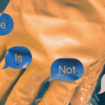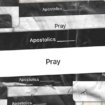Hard Questions: Loving the Lost

Hard Questions Loving the Lost
by Jasmin Michelle Smith
What does it mean to love the lost? Who are they? What is our responsibility according to the Word? What was Jesus’ relationship with those who were not “like Him”?
If we are called to be like Jesus and to obey His Word, then we are called to love one another as Christ loved us (John 13:34–35). Does this apply only to our brothers and sisters in Christ? Of course not! We are called to love everyone, no matter his or her background or lifestyle. But what exactly does that look like from a biblical perspective? How are we to “love the sinner but hate the sin”?
Sin Is Sin
First, we must realize that sin is sin. Every sin separates us from God. There are no big sins or small sins. Jesus equated hate to murder (Matthew 5:21–22; cf. I John 3:15), and looking at a woman lustfully to having committed adultery (Matthew 5:27–28), both of which would be considered by our current culture to be “small sins” yet were punishable in by stoning in Jesus’ day.
For from within, out of a person’s heart, come evil thoughts, sexual immorality, theft, murder, adultery, greed, wickedness, deceit, lustful desires, envy, slander, pride, and foolishness. All these vile things come from within; they are what defile you. (Mark 7:21–23, NLT)
We know that every human being is born of the flesh first, and as a result we are all sinners: for all have sinned and fall short of the glory of God (Romans 3:23, NKJV). So if we are all sinners, we cannot simply look at ourselves as born-again Christians and choose to turn a blind eye to where we came from. If we have been born of the water through baptism in Jesus’ name and filled with His Spirit evidenced by speaking with other tongues, then Christ has redeemed us. If each of us is honest, though, our redemption did not automatically result in a perfect life free of sin. Yes, we have been freed from the weight and bondage of sin, for we now know THE WAY of escape (repentance to our heavenly Father, Jesus Christ), but we are still sinners because we are human. The Holy Ghost within us helps us to make better choices, but we are by no means perfect.
What Is a Sin?
Debating the issue of whether something is deemed sinful is not the point of this article. If we truly desire to know whether or not we are living according to the Word, we need look no further than the Word for our answer. Jesus was clear that it is not our job to judge anyone’s sin, but that He alone is the one and only righteous judge.
Do not judge others, and you will not be judged. For you will be treated as you treat others. The standard you use in judging is the standard by which you will be judged. And why worry about a speck in your friend’s eye when you have a log in your own? How can you think of saying to your friend, “Let me help you get rid of that speck in your eye,” when you can’t see past the log in your own eye? Hypocrite! First get rid of the log in your own eye; then you will see well enough to deal with the speck in your friend’s eye. (Matthew 7:1–5, NLT)
What we must realize is that God died for all of our sins, not only those of a select group of people or a specific type of sin. He died for the liar, the murderer, the adulterer, the thief, the rich, the poor, the young, and the old. He died for each of our sins, no matter how long we have been living contrary to His Word.
And he is the propitiation for our sins: and not for ours only, but also for the sins of the whole world. (I John 2:2)
For God does not show favoritism. (Romans 2:11, NIV)
If we confess our sins, he is faithful and just and will forgive us our sins and purify us from all unrighteousness. (I John 1:9, NIV)
He himself bore our sins in his body on the tree, so that we might die to sins and live for righteousness; by his wounds you have been healed. (I Peter 2:24, NIV)
Christ knew exactly what He was doing when He died on the cross. He knew there would be many who would accept His gift of forgiveness and freedom, and that there would be those who would choose life. He also knew there would be many who would reject Him and His gift for them.
It is our responsibility as Christians, those who fully understand the transformative power of His redeeming blood, to share that with others. No, this does not mean we are to go around condemning people for what the Bible deems as sinful behavior.
Broken people do not often need to be convinced of their brokenness. But they do need to be convinced that we love them, because if they cannot be convinced that we love them, they will never be convinced that Jesus loves them. (Dr. David Norris, Pentecostal Herald, 2007)
How can we expect the single mother, the drug addict, the homosexual, or the murderer to walk through our church doors to hear about the redeeming work of the cross, if we are holding up signs at every door saying they are not welcome? This is not done simply with our words, but with our actions.
Simple Love
A few years ago, I was witnessing to an agnostic coworker who asked me how it was that I could claim to love everyone but specifically not stand behind the LGBTQ community when it came to marriage equality. My response was this: “If I had a loved one who was addicted to drugs or alcohol, I would not be showing my love them by giving them money or supporting them in any other way that would enable them to continue feeding their addiction. Instead, the best way for me to show them my love would be to try my best to get them the help they need without forcing them to do anything they were not open to or ready for. We all know that an addict who is forced into rehab is unlikely to recover, but if we lead by example and show them we are not judging them but simply desiring what is best for them, they are likely to see our genuine care and start desiring something better for themselves.”
My coworker had never heard it put that way before and said, “If only everyone loved that way.” Yes, we should we be loving that way. It is how we need to love the lost.



